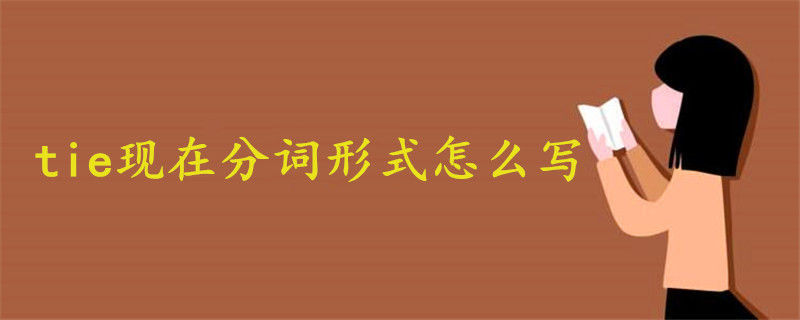tie的现在分词形式为tying。tie可作名词和动词,作为名词时,译为领带、绳子、金属丝、联系、关系、纽带;作为动词时,译为系、绑、将……系、束紧、捆绑、系扣。

tie的中文含义及用法介绍
1、作为动词,译为(用线、绳等)系,拴,绑,捆,束;将…系在…上;束紧;系牢;捆绑;(在线、绳上)打结,系扣。
例句:She tied the newspapers in a bundle.
她把报纸扎成一捆。
He had to tie her hands together.
他不得不把她的双手绑在一起。
She tied a label on to the suitcase.
她把签条系在衣箱上。
Can you help me tie my tie?
你能帮我打领带吗?
The skirt ties at the waist.
裙子在腰部束紧。
I want to work but I'm tied to the house with the baby.
我想工作,但却被孩子拴在家里。
They tied for second place.
他们并列第二名。
2、作为名词,译为领带;绳子;金属丝;线;联系;关系;纽带。
例句:The firm has close ties with an American corporation.
这家商行与一家美国公司关系密切。
He was still a young man and he did not want any ties.
他还年轻,不想有任何束缚。
The match ended in a tie.
这场比赛以平局结束。
Jason had taken off his jacket and loosened his tie.
贾森已经脱下夹克,松开了领带。










